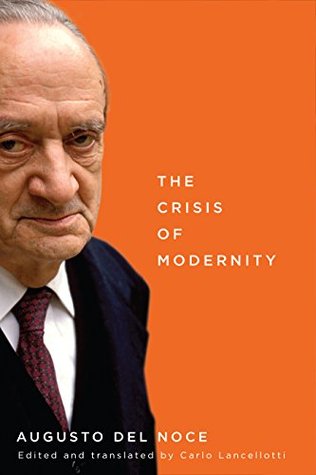Kindle Notes & Highlights
Read between
September 26 - September 26, 2017
“faith cannot be demonstrated, and yet faith alone makes it possible to explain existence rationally, while at the same time it is concretely verified by it in terms of reason and experience.”11 Does rationalism not start, likewise, from an unprovable option, which however is not declared as such? And does not its history put it to the test, with the result that its initial contradiction manifests itself in its inability to organize life rationally?12
The spirit of modernity, which is the foundation of modern opinions and political movements, is thus the immanentization of the Christian eschaton.
ancient gnosis atheizes the world (by denying that it was created by God) in the name of divine transcendence. Post-Christian gnosis atheizes it in the name of radical immanentism.
The Gnostic quest is about rules to free the soul from the world; conversely, post-Christian immanentism searches for rules to build an absolutely new world.
“The more people are drawn or pressured into the Christian orbit, the greater will be the number among them who do not have the spiritual stamina for the heroic adventure of the soul that is Christianity; and the likeliness of a fall from faith will increase when civilizational progress of education, literacy and intellectual debate will bring the full seriousness of Christianity to the understanding of ever more individuals.”
one cannot simply oppose biblical thought and Gnosticism without arriving at modernism.
How many times have I read in recent Catholic authors that the dogma of the incarnation means the rehabilitation of matter against the Gnostic anathema? The logical endpoint is the incarnation without the cross and without redemption from sin.
The denial of original sin lies at the root of the new Gnosticism, and its history goes to show that once this denial is accepted, the whole edifice of Christianity is destined to crumble.
the “Puritan case” – viewed as the first wave of post-Christian Gnosticism – and to the incalculably valuable typological analysis of Puritanism that was formulated by its adversary Richard Hooker
if we immanentize the eschaton, evil coincides with the past;
on the one hand, the followers of degenerate gnosis replace religion with politics as the road to human liberation; on the other, they cannot hope to succeed through persuasion because the immanentization of the eschaton is a theoretical fallacy. No matter what form of Gnosticism will prevail, believers in the ancient values will be ostracized and sentenced to the hell of social oblivion, precisely because of their morality and sincerity. And the sentence will be pronounced in the name of a new religious interpretation or of an unverifiable meaning of history (or of both at the same time).
...more
let us consider the spiritual process of the last twenty years. It is unquestionable that theoretical Marxism has lost ground, but in favour not of Christianity but of scientism. Now, it is a fact that scientism – which means the interpretation of science in terms of a new gnosis – leads to a greater degree of de-humanization than Marxism as a political praxis.
The historical vision of Catholic reactionary thinkers, instead, has been completely dominated by the secular view of history and has in fact accepted the three-fold scheme of historical periodization, merely changing the sign of its value from positive to negative.
at the origins of what is usually called secular thought there is a non-rational choice and an option for politics and power can also explain the partial truth of Marxism. Historical materialism is valid, but precisely only as an explanation of the secular forms of thought and of their sequence.


